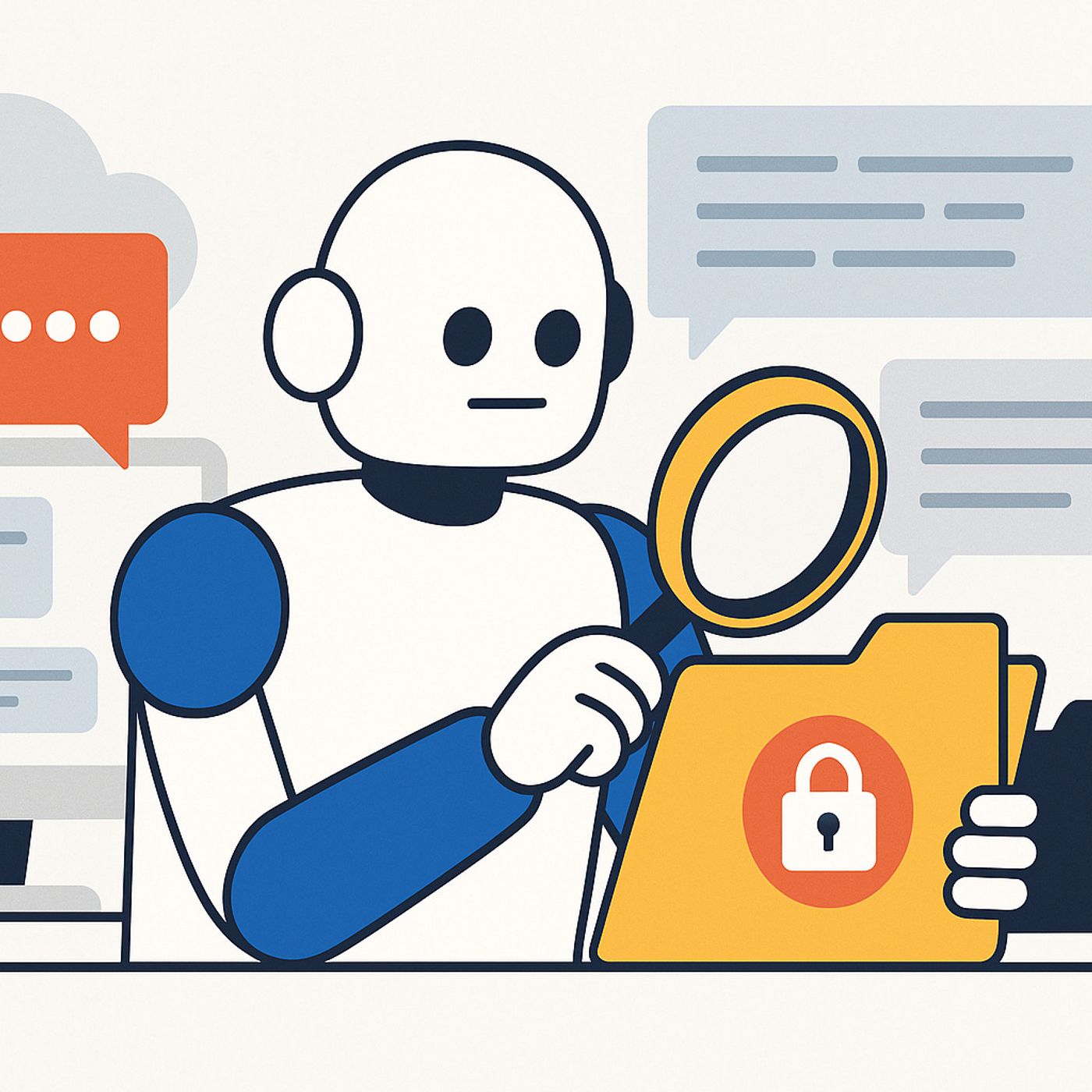Podcast Episode Details
Back to Podcast Episodes
Advanced Copilot Agent Governance with Microsoft Purview
Opening – Hook + Teaching PromiseYou’re leaking data through Copilot Studio right now, and you don’t even know it.Every time one of your bright, shiny new Copilot Agents runs, it inherits your permissions—every SharePoint library, every Outlook mailbox, every Dataverse table. It rummages through corporate data like an overeager intern who found the master key card. And unlike that intern, it doesn’t get tired or forget where the confidential folders are.That’s the part too many teams miss: Copilot Studio gives you power automation wrapped in charm, but under the hood, it behaves precisely like you. If your profile can see finance data, your chatbot can see finance data. If you can punch through a restricted connector, so can every conversation your coworkers start with “Hey Copilot.” The result? A quiet but consistent leak of context—those accidental overshares hidden inside otherwise innocent answers.By the end of this podcast, you’ll know exactly how to stop that. You’ll understand how to apply real Data Loss Prevention (DLP) policies to Copilot Studio so your agents stop slurping up whatever they please.We’ll dissect why this happens, how Power Platform’s layered DLP enforcement actually works, and what Microsoft’s consent model means when your AI assistant suddenly decides it’s an archivist.And yes, there’s one DLP rule that ninety percent of admins forget—the one that truly seals the gap. It isn’t hidden in a secret portal, it’s sitting in plain sight, quietly ignored. Let’s just say that after today, your agents will act less like unsupervised interns and more like disciplined employees who understand the word confidential.Section 1: The Hidden Problem – Agents That Know Too MuchHere’s the uncomfortable truth: every Copilot Agent you publish behaves as an extension of the user who invokes it. Not a separate account. Not a managed identity unless you make it one. It borrows your token, impersonates your rights, and goes shopping in your data estate. It’s convenient—until someone asks about Q2 bonuses and the agent obligingly quotes from the finance plan.Copilot Studio links connectors with evangelical enthusiasm. Outlook? Sure. SharePoint? Absolutely. Dataverse? Why not. Each connector seems harmless in isolation—just another doorway. Together, they form an entire complex of hallways with no security guard. The metaphor everyone loves is “digital intern”: energetic, fast, and utterly unsupervised. One minute it’s fetching customer details, the next it’s volunteering the full sales ledger to a chat window.Here’s where competent organizations trip. They assume policy inheritance covers everything: if a user has DLP boundaries, surely their agents respect them. Unfortunately, that assumption dies at the boundary between the tenant and the Power Platform environment. Agents exist between those layers—too privileged for tenant restrictions, too autonomous for simple app policies. They occupy the gray space Microsoft engineers politely call “service context.” Translation: loophole.Picture this disaster class scenario. A marketing coordinator connects the agent to Excel Online for campaign data, adds Dataverse for CRM insights, then saves without reviewing the connector classification. The DLP policy in that environment treats Excel as Business and Dataverse as Non‑Business. The moment someone chats, data crosses from one side to the other, and your compliance officer’s blood pressure spikes. Congratulations—your Copilot just built a makeshift export pipeline.The paradox deepens because most admins configure DLP reactively. They notice trouble only after strange audit alerts appear or a curious manager asks, “Why is Copilot quoting private Teams posts?” By then the event logs show legitimate user tokens, meaning your so‑called leak looks exactly like proper usage. Nothing technically broke; it simply followed rules too loosely written.This is why Microsoft keeps repeating that Copilot Studio doesn’t create new identities—it exte
Published on 3 days, 17 hours ago